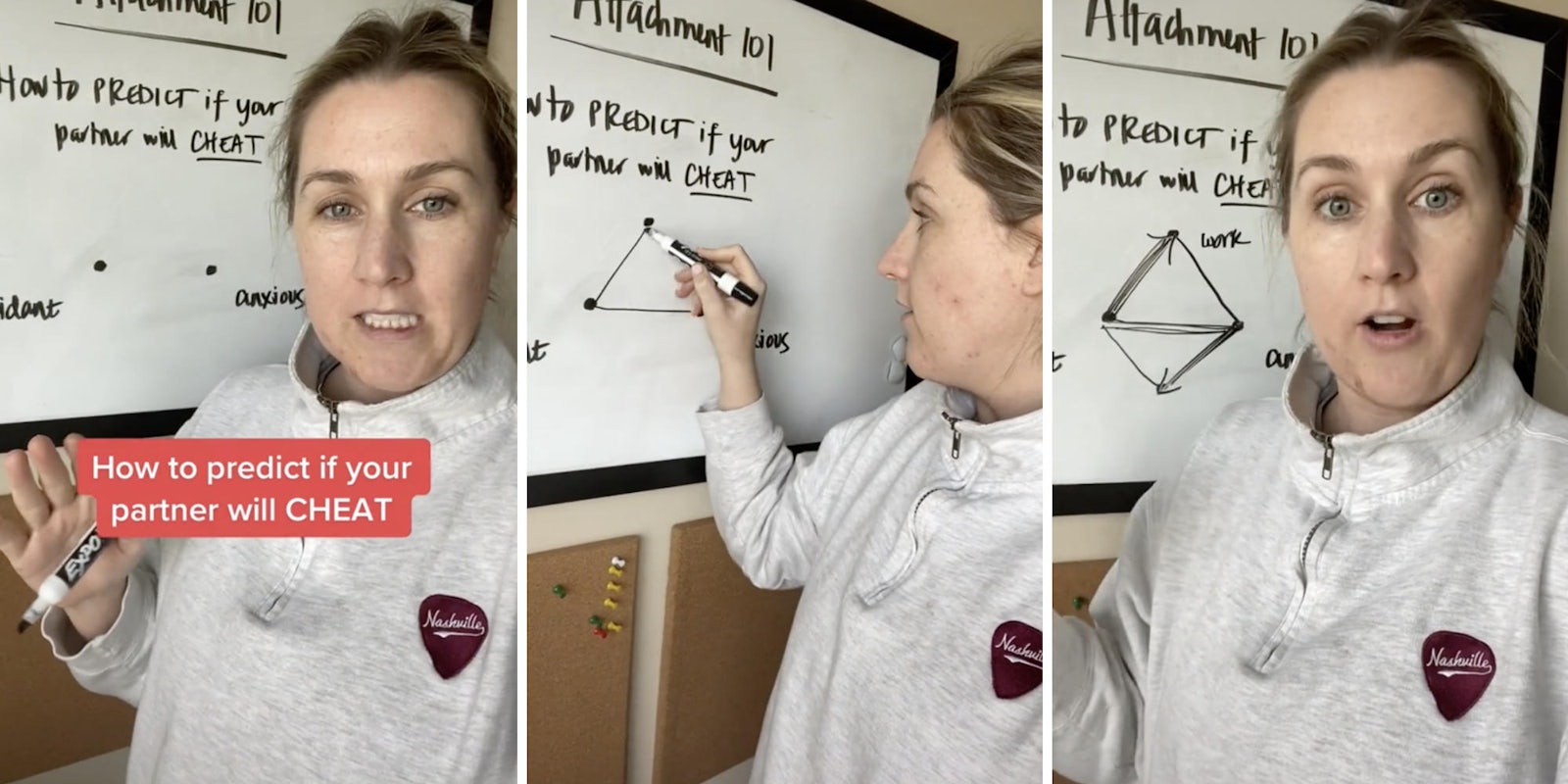In a viral video, TikToker Kate (@restoringrelationships) gives a lesson on “attachment 101” that she claims helps users predict if their partner will cheat on them.
“Little bit of a morbid subject,” she said, hoping to help her 79,000 followers. “And before I get into it, this is very general so take what you like and leave the rest.”
The video has since garnered more than 713,000 views.
Kate, who is also a marriage and family therapist, then draws a triangle diagram, more often referred to as triangulation, and uses the example of an avoidant partner and an anxious partner.
Triangulation is a concept revolving around three people, or three outside sources, to help avoid conversation and misdirect energy. When stress is placed on the bond of two partners, the avoidant brings in the third party, according to Kate.
“I also like to think of avoidant attachment styles as externalizers,” Kate explained. “When there is an issue, they don’t come to the relationship like an anxious [partner] would.”
She added that the avoidant partner will seek an external source to satisfy their emotional needs, such as work, alcohol, or even another person. However, an anxious partner will internalize their emotions and will, in turn, cause stress and strain to the relationship.
The triangulation of the relationship creates a false sense of stability, Kate said, and if you aren’t conscious of the push and pull, the relationship is at its mercy.
“Basically, if your partner is constantly going outside the relationship to get their needs met,” she explains, “That, to me, are warning signs that cheating could happen.”
In the comments, users express their own attachment styles and ask questions based on their own relationships.
“Just stay single mate, no headaches,” one user commented.
“Those of you who are avoidant need to get a grip & learn how to communicate. It’s really not that hard & not communicating causes so many issues,” @rebekahcherry896 said.
“What if you’re both [an avoidant and anxious]?” another user asked.
“It’s called ‘disorganized’ attachment- anxious and avoidant are two ends of a spectrum & fall under ‘organized’ attachment so ‘disorganized’ is both!” Kate responded.
“Omg people put so much emphasis on cheating how about we worry about healing ourselves so we don’t take it personal,” TikToker Ness commented. “That’s the whole point of the video,” Kate commented back.
In a follow-up video, Kate addresses a comment from the original video: “Ah. So is villainising the people who hurt me part of my avoidant?” the user asked.
“This is why I love my account- yall are SMART AF & I learn equally from u,” Kate responded in the video.
“That video changed my outlook I swear,” a user commented.
Kate also has a podcast called Therapists as People in which she shares more advice on relationships.
The Daily Dot reached out to Kate via Instagram messaging, email, and TikTok comment.


